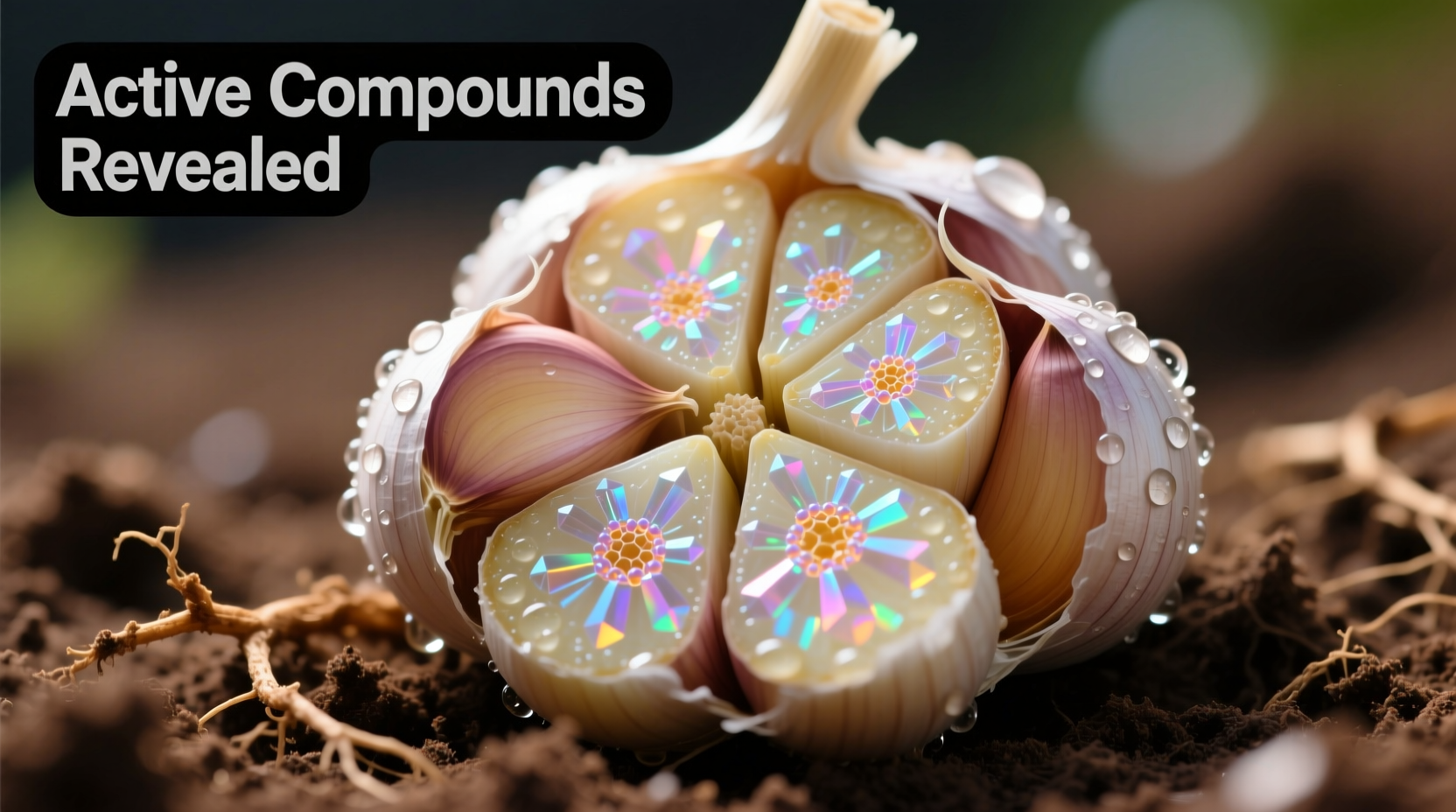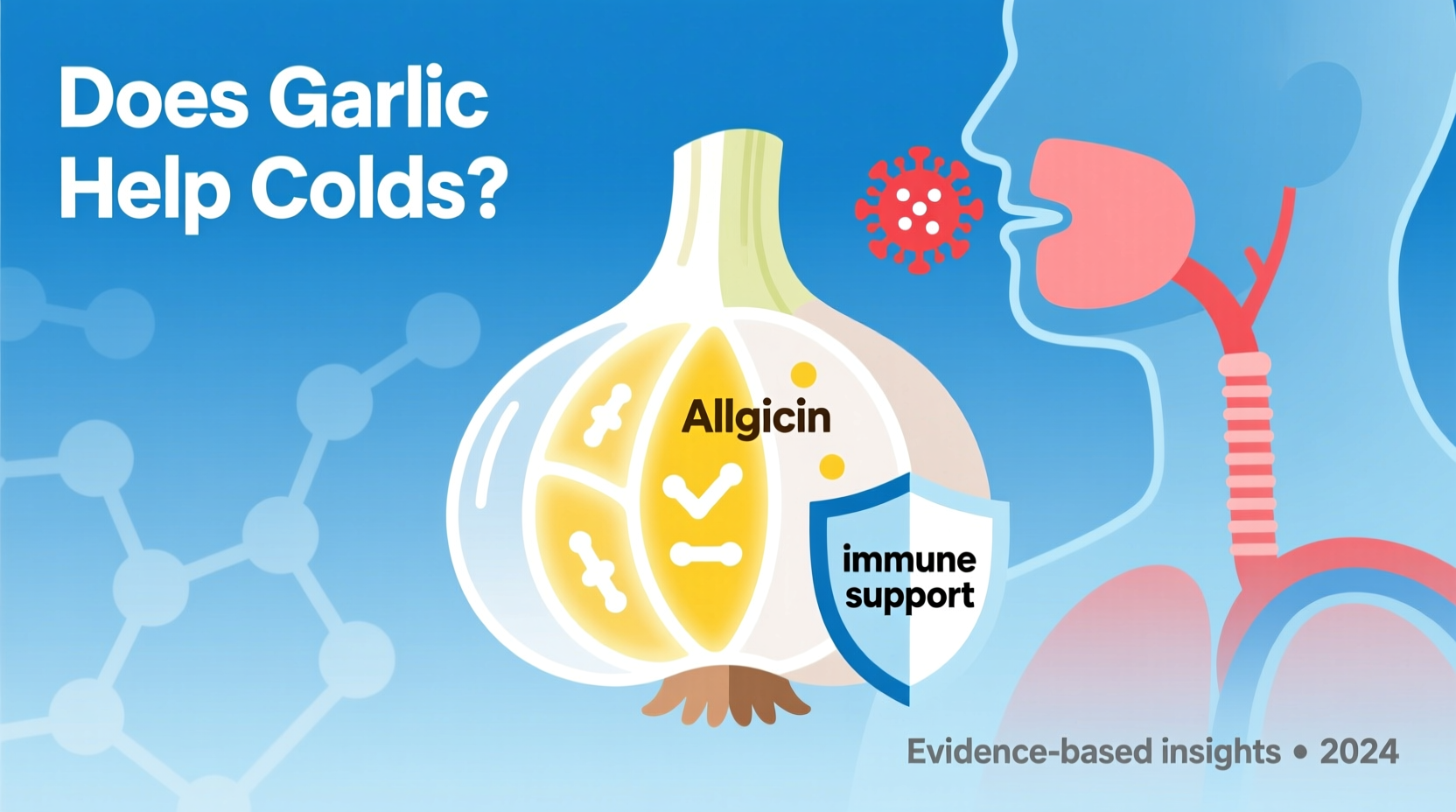What Science Says About Garlic and Colds: Separating Fact From Folklore
When you're searching for natural cold remedies, garlic often tops the list of traditional solutions. But does it actually work? Let's examine what decades of research reveal about garlic's potential role in cold prevention and treatment.
Understanding Garlic's Active Compounds
Garlic's potential health benefits stem primarily from allicin, a sulfur-containing compound formed when garlic is chopped, crushed, or chewed. This unstable compound quickly transforms into other organosulfur compounds that may influence immune function. Unlike many herbal remedies, garlic's active components have been extensively studied in laboratory settings.

Research Timeline: How Our Understanding Has Evolved
The scientific investigation of garlic's effects on colds spans several decades:
- 1990s: Early observational studies noted lower cold incidence in populations with high garlic consumption
- 2001: A notable clinical trial published in Advances in Therapy reported a 63% reduction in cold incidence among participants taking garlic supplements
- 2012: A Cochrane Review analyzed available evidence but found insufficient data to make definitive recommendations
- 2014-2023: Additional small-scale studies examined aged garlic extract's effects on immune cell activity during cold season
What the Evidence Actually Shows
Based on current research, here's what we know about garlic and colds:
| Claim | Scientific Support | Limitations |
|---|---|---|
| Prevents colds | Moderate (primarily for aged garlic extract) | Most studies small; benefits seen mainly in healthy adults |
| Reduces cold severity | Weak to moderate | Inconsistent results across studies |
| Shortens cold duration | Weak | Minimal evidence from limited studies |
| Treats active cold symptoms | Very weak | No strong evidence for symptom relief |
Practical Applications: Using Garlic Effectively
If you're considering garlic for cold prevention, here's what the evidence suggests might work:
Choosing the Right Form
Not all garlic products deliver the same potential benefits:
- Aged garlic extract: Shows the most consistent research results for immune support
- Raw garlic: Contains active compounds but may cause digestive discomfort
- Cooked garlic: Heat reduces allicin content but creates different beneficial compounds
- Garlic supplements: Quality varies significantly; look for products standardized to allicin potential
Realistic Expectations and Timing
Research suggests garlic works best as a preventive measure rather than a treatment:
- Begin consumption before cold season starts for potential preventive benefits
- Consistent daily intake appears more effective than occasional use
- Most studies used doses equivalent to one to two cloves of fresh garlic daily
- Effects are modest compared to proven preventive measures like handwashing
Important Limitations and Safety Considerations
Garlic isn't a miracle cure, and has important limitations you should know:
When Garlic Won't Help
Garlic shows little to no benefit in these situations:
- Once cold symptoms have already developed
- For children under 12 (insufficient safety data)
- As a replacement for proven medical treatments
- For individuals with compromised immune systems
Safety and Interactions
While generally safe, garlic can cause issues for some people:
- May increase bleeding risk, especially when combined with blood thinners
- Can cause heartburn or digestive discomfort in sensitive individuals
- Raw garlic applied to skin can cause burns or irritation
- Consult your doctor before using therapeutic doses if taking medications
Putting Garlic in Context: A Realistic Approach to Cold Prevention
While garlic may offer some modest benefits for cold prevention, it should be viewed as just one component of a comprehensive approach to immune health. The most effective cold prevention strategies remain:
- Regular handwashing with soap and water
- Adequate sleep (7-9 hours for most adults)
- Balanced nutrition including sufficient vitamin D
- Regular physical activity
- Stress management techniques
If you do develop a cold, evidence-based approaches for symptom relief include staying hydrated, using saline nasal irrigation, and appropriate over-the-counter medications for specific symptoms. Remember that antibiotics don't treat viral colds and should only be used for bacterial infections.
Looking Ahead: Future Research Directions
Scientists continue investigating garlic's potential immune benefits with more rigorous methodologies. Current limitations in the research include small sample sizes and variations in garlic preparations used. Future studies with larger participant groups and standardized garlic products may provide clearer answers about garlic's role in immune support.











 浙公网安备
33010002000092号
浙公网安备
33010002000092号 浙B2-20120091-4
浙B2-20120091-4